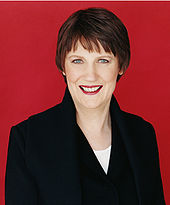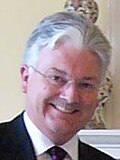
Back Parlamentswahl in Neuseeland 2008 German Elecciones generales de Nueva Zelanda de 2008 Spanish Élections législatives néo-zélandaises de 2008 French Elezioni generali in Nuova Zelanda del 2008 Italian 2008년 뉴질랜드 총선 Korean Nieuw-Zeelandse verkiezingen 2008 Dutch Eleições gerais na Nova Zelândia em 2008 Portuguese Парламентские выборы в Новой Зеландии (2008) Russian 2008 New Zealand general election SIMPLE Парламентські вибори в Новій Зеландії 2008 Ukrainian
| |||||||||||||||||||||||||||||||||||||||||||||||||||||||||||||||||||||||||||||||||||||||||||||||||||||||||||||||||||||||||||||||||||||||||||||
All 122 seats in the House of Representatives, including two overhang seats 62 seats needed for a majority | |||||||||||||||||||||||||||||||||||||||||||||||||||||||||||||||||||||||||||||||||||||||||||||||||||||||||||||||||||||||||||||||||||||||||||||
|---|---|---|---|---|---|---|---|---|---|---|---|---|---|---|---|---|---|---|---|---|---|---|---|---|---|---|---|---|---|---|---|---|---|---|---|---|---|---|---|---|---|---|---|---|---|---|---|---|---|---|---|---|---|---|---|---|---|---|---|---|---|---|---|---|---|---|---|---|---|---|---|---|---|---|---|---|---|---|---|---|---|---|---|---|---|---|---|---|---|---|---|---|---|---|---|---|---|---|---|---|---|---|---|---|---|---|---|---|---|---|---|---|---|---|---|---|---|---|---|---|---|---|---|---|---|---|---|---|---|---|---|---|---|---|---|---|---|---|---|---|---|
| Opinion polls | |||||||||||||||||||||||||||||||||||||||||||||||||||||||||||||||||||||||||||||||||||||||||||||||||||||||||||||||||||||||||||||||||||||||||||||
| Turnout | 2,376,480 (79.46%) | ||||||||||||||||||||||||||||||||||||||||||||||||||||||||||||||||||||||||||||||||||||||||||||||||||||||||||||||||||||||||||||||||||||||||||||
| |||||||||||||||||||||||||||||||||||||||||||||||||||||||||||||||||||||||||||||||||||||||||||||||||||||||||||||||||||||||||||||||||||||||||||||
 Results by electorate, shaded by winning margin | |||||||||||||||||||||||||||||||||||||||||||||||||||||||||||||||||||||||||||||||||||||||||||||||||||||||||||||||||||||||||||||||||||||||||||||
| |||||||||||||||||||||||||||||||||||||||||||||||||||||||||||||||||||||||||||||||||||||||||||||||||||||||||||||||||||||||||||||||||||||||||||||
The 2008 New Zealand general election was held on 8 November 2008 to determine the composition of the 49th New Zealand Parliament. The liberal-conservative National Party, headed by its parliamentary leader John Key, won the largest share of votes and seats, ending nine years of government by the social-democratic Labour Party, led by Helen Clark. Key announced a week later that he would lead a National minority government with confidence-and-supply support from the ACT, United Future and Māori parties. The Governor-General swore Key in as New Zealand's 38th Prime Minister on 19 November 2008. This marked the beginning of the Fifth National Government which governed for the next nine years, until the 2017 general election, when a government was formed between the Labour and New Zealand First parties, with support on confidence and supply by the Green Party.
The Green Party became the third-largest party in Parliament, with nine seats. The ACT Party came joint-fourth (in terms of seats), increasing their number of seats from two to five, and reversing some of their losses from the 2005 election. The Māori Party also won five seats – out of the seven Māori electorates – creating an overhang of two seats. The New Zealand First party, which had seven MPs in the previous parliament, failed to win any electorates or pass the 5 per cent MMP threshold, and therefore won no seats in the new parliament.
In his victory speech, John Key announced the readiness of the ACT, Maori Party and United Future parties to co-operate with the National Party to form the next government, the Fifth National Government of New Zealand. In her concession speech, Helen Clark announced her resignation as the parliamentary leader of the Labour Party. She had led the party since 1993, and had served as prime minister since the 1999 election. 2008 saw several important political figures enter Parliament, including future finance minister Grant Robertson, future National Party leader Simon Bridges, and the next two Labour Prime Ministers, Jacinda Ardern and Chris Hipkins. Former Labour minister Roger Douglas, who stepped down in 1990 returned to parliament in this election but as a member for the ACT Party.







